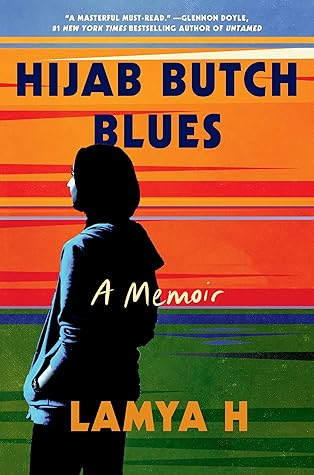More on this book
Community
Kindle Notes & Highlights
All year that I’ve been having these feelings, not a day goes by that I am not terrified that someone will find out, paranoid that people can see through me, to this core of me that is wretched and wrong. I feel more alone than I ever have. I don’t want this, I don’t want to live like this. I want to die.
“It’s not your race that makes you feel like a jinn. It’s white supremacy.”
Allah is not a man or a woman. Allah is Allah.
As if I’ve never thought about how I don’t want that, how every cell in my body recoils at that thought of being a man, and yet how harrowing it is that the only way I can get out of my bed and make it through the day is by wearing masculinity on my body. As if I’ve never held dear my feminist rage, never thought about how I feel so politically aligned with womanhood and yet hate inhabiting it, hate it when my body is read as such. As if the only way to be trans is to transition to a binary gender, as if I can’t exist as I have been, in some space in between or beyond, using she or they
...more
It’s not something I’m unused to, this whole being the only visibly different person in the room thing, this whole having to play the stereotype crusher, the not-oppressed, the receptacle of unintentional racism. But it hits me hard, the constancy of the burden that I carry, and how different this burden feels today. Even to this crew, I have to prove myself. You all know I’m queer, but I still have to play the cool hijabi, I think, my gaze shifting from Adam’s partner to the rest of the group, now watching the music video for “Bad Romance” for the second time. The not-too-religious hijabi,
...more
Four times facing the very real fear that this could all end, this life I’m beginning to build for myself in the U.S., this country that doesn’t want me, after growing up in a country that didn’t want me.
On our walk to the theater, we talk about how national parks are a product of American expansionism and white supremacy—and guiltily admit to each other that we still want to visit every single one.
One afternoon, I walk into the living room to find her hugging him, a close, sweet hug that I don’t recognize. I didn’t know that she hugged like that. In my hurt and confusion, I act out, refusing to share toys with my brother, not doing my chores, talking back—which means spanking and punishments, my mother refusing to speak to me for days at a time, no TV.
I’m too afraid of taking without giving, which would mean that I’m no longer indispensable to people, that they’re indispensable to me. And if I’m not offering or providing anything, people would start to notice they don’t need me.
He’s the head of the granaries, yes, but his most important role winds up being a beloved member of this community—once he decides to let his family love him back, even if they’re flawed and failing his tests. Once he lets his guard down, once he stops being blind to all the ways everyone is already showing him love.
As I bite into the banana bread, I realize if all around me is the evidence of what happens without my asking, doesn’t that mean that there’s possibility for more? A more trusting love where I could let myself ask for things, let myself be vulnerable and imperfect and even dispensable? A more magnanimous, forgiving kind of love where sometimes people give me what I ask for and sometimes they don’t and it’s okay? Where it’s okay to be disappointed and it’s okay to be disappointing—where we can love each other and ourselves regardless?
There is an inherent quietness to reading that I hoped would create space for people to absorb, reflect, consider. Or, if they shared my views, to feel a little less alone in the crushing powerlessness of pointless fights.
Messiness is—at its best—generative; it allows us to ask ourselves the truest, most important questions about what it means to be alive.
you talk about coming out as this process of inviting in, which I thought was really interesting language to put around coming out. Because that is really what it is, in terms of inviting other people into your life, and into your truth.
Cynicism, critique, and argumentation all have their place. But I think when it comes to dreaming of a better world, you have to start from a place of radical hope and idealism. If you can’t imagine a better world can exist, how can you build towards it?
And then I came across Audre Lorde, and it changed my perspective on the purpose of writing—why someone would write, or why someone would read. In terms of short fiction, I read a lot of Dionne Brand, who’s a Canadian poet-slash-novelist. Zadie Smith’s books taught me that you don’t have to have white protagonists, and people of color can relate to other people of color, versus relating only to white people. Dorothy Allison’s work is phenomenal. Deeply personal, and so good at portraying a culture and a community. And of course Leslie Feinberg’s Stone Butch Blues.


